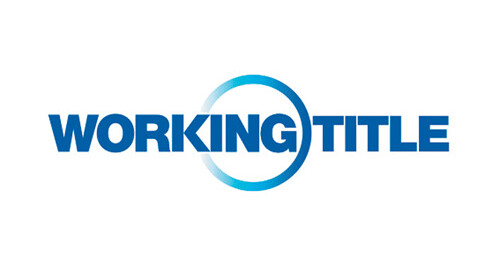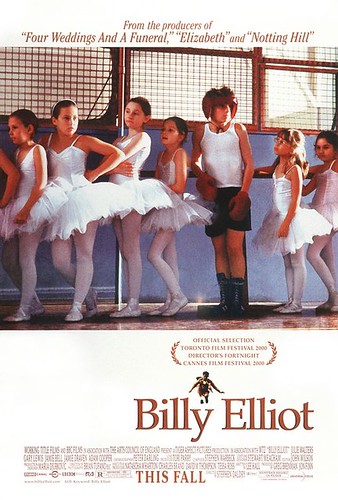
Working title films is a British film production company, founded in London in 1984. Sarah Radclyffe and Tim Bevan were the original have been highly successful in creating popular, British based films of international appeal with Working Title. Their first film, My Beautiful Laundrette (1985), was nominated for several Academy Awards.
More recently it has successfully produced Four Weddings and a Funeral (d. Mike Newell, 1994), Bean (d. Mel Smith, 1997), Elizabeth (d. Shekhar Kapur, 1998), Notting Hill (UK/US, d. Mike Newell, 1999), Bridget Jones's Diary (UK/France/US, d. Sharon Maguire, 2001), About A Boy (Germany/US/France/UK, d. Paul Weitz, 2002). Actor Hugh Grant and writer Richard Curtis have been party to several of these films.
A key element in the company's working methods has been its attention to marketing, striking deals with American and European companies, thus ensuring world-wide distribution for its products. A frequent observation of the company's methods is the inordinate amount of time spent on developing scripts and extensively working on re-writes. Despite its access to high finance, Working Title is also committed to low-budget films with new writers. Such was the case with Billy Elliott (d. Stephen Daldry, 2000)

The following extract is taken from the film4 website,
Co-founder of Working Title Films, one of Britain's most successful film companies ever. Producer of Bridget Jones's Diary, Captain Corelli's Mandolin, Billy Elliot, High Fidelity, Notting Hill and Elizabeth to name but a few.
We put your questions to him...
How did you set up Working Title Films?
I was working on a ghastly pop promo with Stephen Frears and afterwards he rang me up and said I've been sent this script and would you mind reading it and I did and it was called My Beautiful Laundrette. Stephen informed me that he only made films in February and this was November. So we went in to Channel Four. They liked it and said how much? I thought of the biggest figure I could imagine and said half a million and they said okay and we came out and made it. It was a TV movie at that stage but got a lot of critical praise at the Edinburgh Festival and so there it was decided to give it a theatrical release.
Working Title Films at that stage was you and Producer Sarah Radclyffe?
Yes. I began my education as a producer by following Laundrette around the world. In those days for me, and still now if you are an independent producer, you get a script or project and get a bit of money from the UK and the rest from pre-selling to distributors around the world. This was not a totally satisfactory state of affairs because you have no single strategy for releasing the film and it's very hard to make your money back. By 1990 Sarah and I had been habitually mortgaging our houses against our movies and our films weren't good enough so we thought we were going to go to the wall.
And you became involved with PolyGram?
I was lucky because for some time I had been good friends with Michael Kuhn who was looking to start a film division. I explained to him that we lacked the finance to develop the scripts to their full potential and he agreed to support us.
What's the difference in your relationship with Universal than it was with PolyGram?
Previously we didn't have the power to green-light ourselves but now we have considerable creative autonomy and can in fact green-light something if we want to. Interestingly, it was David Aukin who got Four Weddings going because he put £1m into it when PolyGram were unsure. I should also point out that we really try and keep our budgets as low as possible and we won't green-light a film if we think the budget is greater than what we think the film is worth.
How does your development system work?
Nine people working for us across our US and UK Main slate and WT2. Also most of our staff have been working for us since the company began so they have over 10 years experience of our successes and failures. Looking at the company from the outside, I think it's good for projects to have a champion within the company, someone who will keep pushing it forward.
Do you spend a lot on development?
Millions of pounds. Literally. It's the most important area. And we are not afraid to pull something if it's not working. We put five million dollars into Thunderbirds before deciding it was too much of a risk. That may sound a lot but you have to bear in mind a film will cost a minimum of $25 million to market and release so better to get out sooner if it's not working.
What's the difference between the European film culture and the Hollywood culture?
We work a lot with French studio Canal Plus. Hollywood is far more brutal. We have an office there and I'm in LA once a month or once every six weeks. Over there it's a multi-million dollar business and people scream and shout a lot. It can have the same atmosphere as a Future's floor in the City of London. Then there's the politics, people are in one minute and out the next. But as long as you keep delivering films that work, Hollywood will be happy to deal with you. I think the mistake British producers make when they go over there is that they are suspicious of Hollywood.
What about the talent?
Talent agents have become enormously powerful. Eric and I made friends with junior talent agents at CAA ten years ago. Since then they've risen through the company and we've stayed friends and they help us on numerous occasions securing the talent we need.
How hands-on are you during production?
It varies from movie to movie. With the Coen Brothers with whom we have a deal, we just send them a cheque and look after distribution. In fact they shoot almost to the letter the script they deliver so it's not a problem anyway. With others you are there all the time. I always say that the real development takes place as soon as a film is green-lit. That's when the script and storyboard really come under the microscope. Things change as they come to life. Even in the edit, things are re-worked and streamlined. Interestingly, Bridget Jones for example took a huge leap forward in the cutting room because Richard Curtis was present and he's a ruthless editor.
What was your worst day in the business?
I was in South Africa shooting A World Apart and because of a tortuous financial guarantee procedure that existed then which took in several countries and even more banks that would be too boring to explain here, I in short, didn't have the cash-flow to finish the picture. So for a day I thought I was going to go to lose my house and go to prison. Then things somehow got straightened out.
What is your favourite film that you've produced?
I love and loathe them all.
What about the next five years?
Getting bigger. Diversifying. We are interested in the music business. Several of our films have had number one soundtracks and we haven't seen as much revenue for that as we might. We are also looking at Australia. It's very similar to the UK in the sense there's a lot of home grown talent looking for an outlet. The humour is great and goes down well abroad. And bringing through new film makers on our WT2 label.

No comments:
Post a Comment